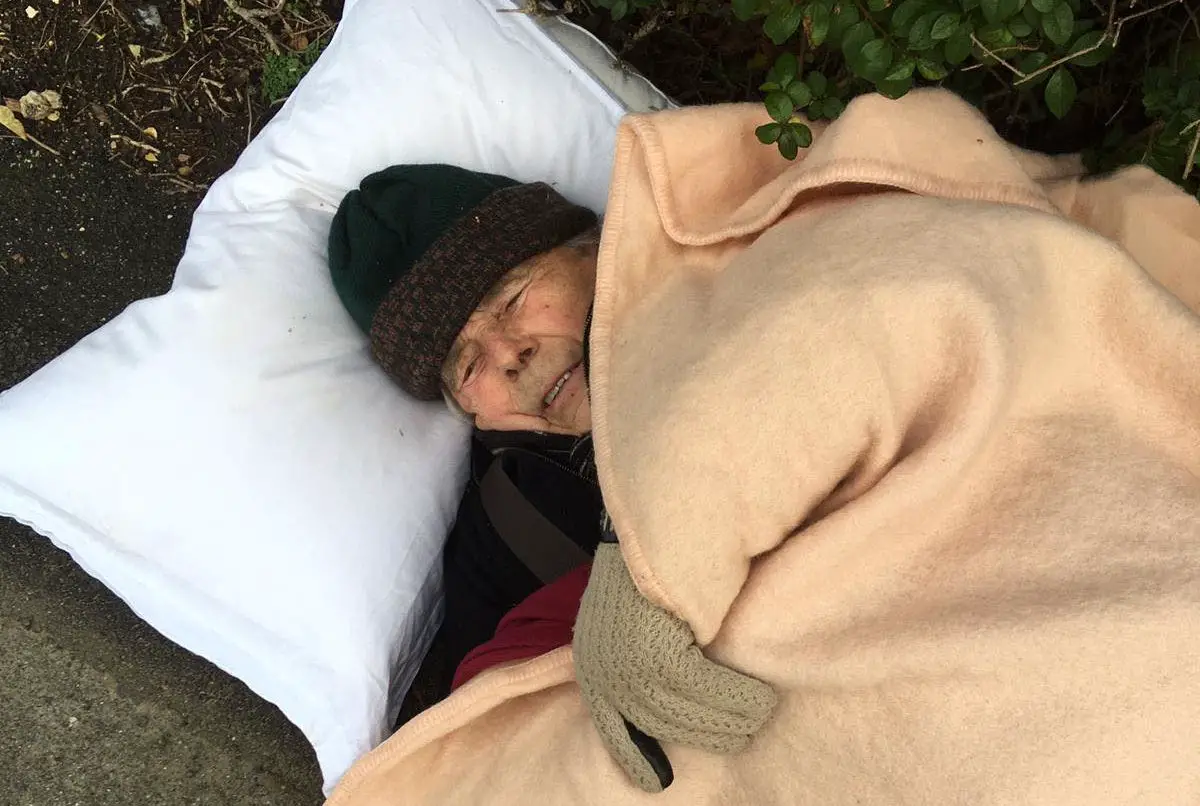On Saturday 4th January, Brian Nordbruch – a fit and healthy 86-year-old – set off from his home in Shanklin with the intention of catching the bus to Ventnor for a day out.
Unfortunately for Brian, he only reached the end of his road before tripping and falling hard on the pavement, breaking his hip in the process.
Little did he or his family know that it would be three hours before the ambulance crew arrived. The Isle of Wight NHS Trust seek to explain this below.
It’s important to point out that the family are in no way criticising the staff. In this case, it is the system that they feel failed them. Here’s what happened.
First call at 9.20am
Brian’s wife called for an ambulance at 9.20am and was told not move him, but cover Brian with blankets until the ambulance arrived.
Several more calls were made over the course of the next three hours (at 10,50, 11.29, 11.31 and 11.56), but the ambulance was still nowhere to be seen.
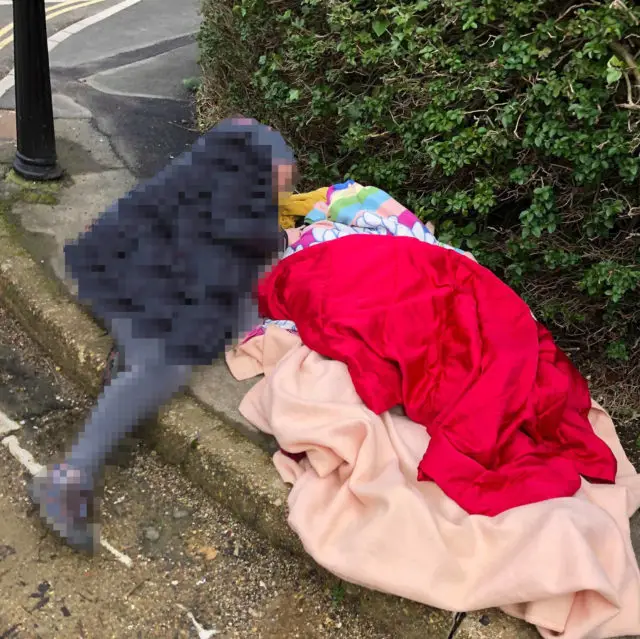
Bitterly cold weather
Four days into January was pretty cold on the Island, with temperatures ranging between a low of 2 degrees and a high of 8 degrees. Relatives waiting with Brian had to be wrapped up with hats, gloves, scarves and warm coats.
Brian, who is usually very stoic, was in great pain and distress. He had blankets covering him, but these were not making any difference to his back and side which were in direct contact with the very cold concrete.
An angel arrives
After an hour an a half of waiting, at 10.50am, Liz (an A&E nurse) – whose Brian’s family can’t thank enough – happened to be passing by.
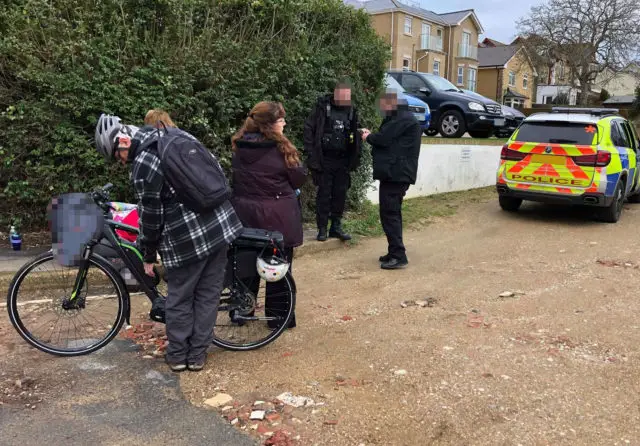
She immediately assessed the situation and rang the ambulance service again, as well as telling the patient’s family that such an incident in a public place should be treated as a Category 2 incident (with a target of 18 minutes response time). Given the temperature and Brian’s situation, Liz was fearful of hypothermia.
Apologetic ambulance crew
Although she was a great help in providing reassurance to Brian, sadly he still had to wait over another hour before the ambulance crew arrived at 12.15pm.
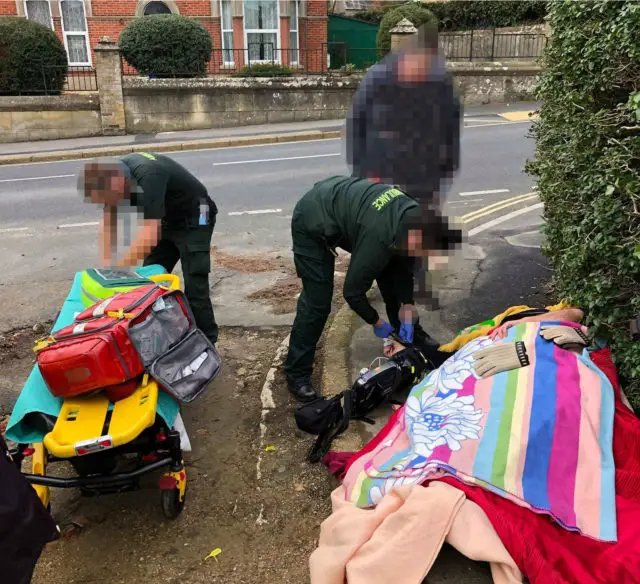
Brian’s wife said,
“The poor staff were apologetic, but inundated with work.”
Brian was finally able to receive pain relief and taken to hospital, where he had to wait in a corridor until 4pm for an x-ray. He had broken his hip and was operated on the following day.
“Felt utterly helpless”
After the incident, Brian’s son Andrew told OnTheWight,
“It was so distressing. I felt utterly helpless as my Dad (who never shows pain) was in extreme pain asking why the ambulance wasn’t coming, saying ‘it’s not coming is it’.”
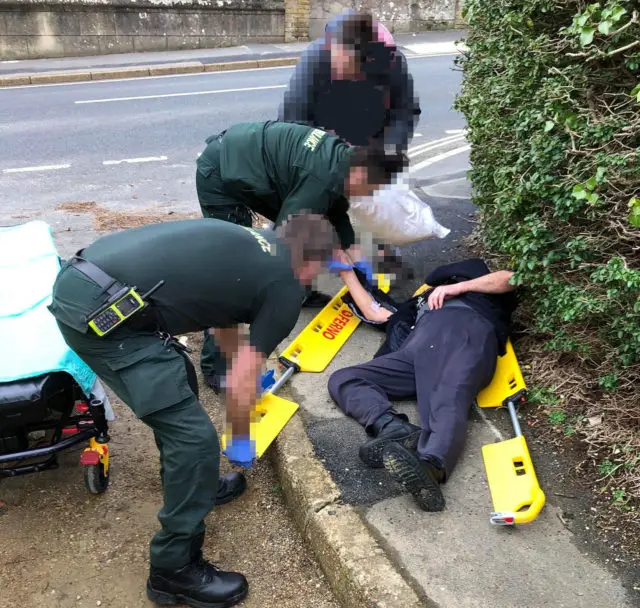
Why such a long wait?
OnTheWight has reported before about the long wait for an ambulance some patients have had in the past and yesterday the subject was all over the national news following an FOIA request by the BBC.
OnTheWight got in touch with Isle of Wight NHS Trust with the background to the case and some questions. We asked,
- Please can you advise why the patient had to wait so long for an ambulance to arrive?
- Why was the incident not dealt with as an 18 minute call out?
- How many ambulances were on duty that day?
- What is the target time for ‘non-life threatening incidents’
- How many hit this target
Just five ambulances in active service each dayWe planned to run this piece yesterday, but the IW NHS asked if they could have some extra time to receive answers from the Ambulance service. OnTheWight felt it was important to get the extra details, so agreed.
Sadly, today, the Isle of Wight NHS Trust didn’t provide specific answers to most of the questions, but instead gave this statement:
“We are very sorry that this gentleman had to wait so long for an ambulance to reach him.
“We know that there is a lot of work to do to improve our response times and we sincerely apologise to all of our residents and patients for these on-going delays.
“On average there are just five ambulances in active service on the Island each day and these teams also have to support patient transfers to and from the mainland.
“The small scale of our service and the geography of the Isle of Wight are significant and unique challenges but we are working with South Central Ambulance Service NHS Foundation Trust (SCAS) to help us continue to improve.”
Additional information provided by the spokesperson:
- There is a complaint relating to this call and the Trust is currently investigating
- This call was handled as a Category 3 but clearly we did not meet the national standard to respond in two hours, for which we apologise unreservedly
- On that day there were a number of life threatening calls and our service did not have enough available ambulances to respond as quickly as we would want
- In 2018 we introduced a new Computer-Aided Dispatch (CAD) system in partnership with SCAS
- In its last inspection (2019) The Care Quality Commission (CQC) identified significant improvement in our Ambulance Service
- We are among the best performing Trusts for ambulance handovers into the acute hospital
- Our Ambulance Service has trained and can dispatch 23 Community First Responders and Co-Responders to provide additional support to the geographic areas that need it most
- Thanks to excellent links with our local community there are also 334 defibrillators in place across the Island
Great staff, awful experience
One month on and Brian is now in a care home for estimated additional 4-6 weeks whilst he learns to walk again.
You’ll be pleased to hear that he’s in good spirits, but his family say, he’s been through an awful time at hospital where he was moved to different wards four times. His family felt there was “really poor communication”.
They stress however, that the staff have been great all the way through, from those who arrived on the scene to all the staff at the hospital.
Images: Provided by the family who were on the scene

